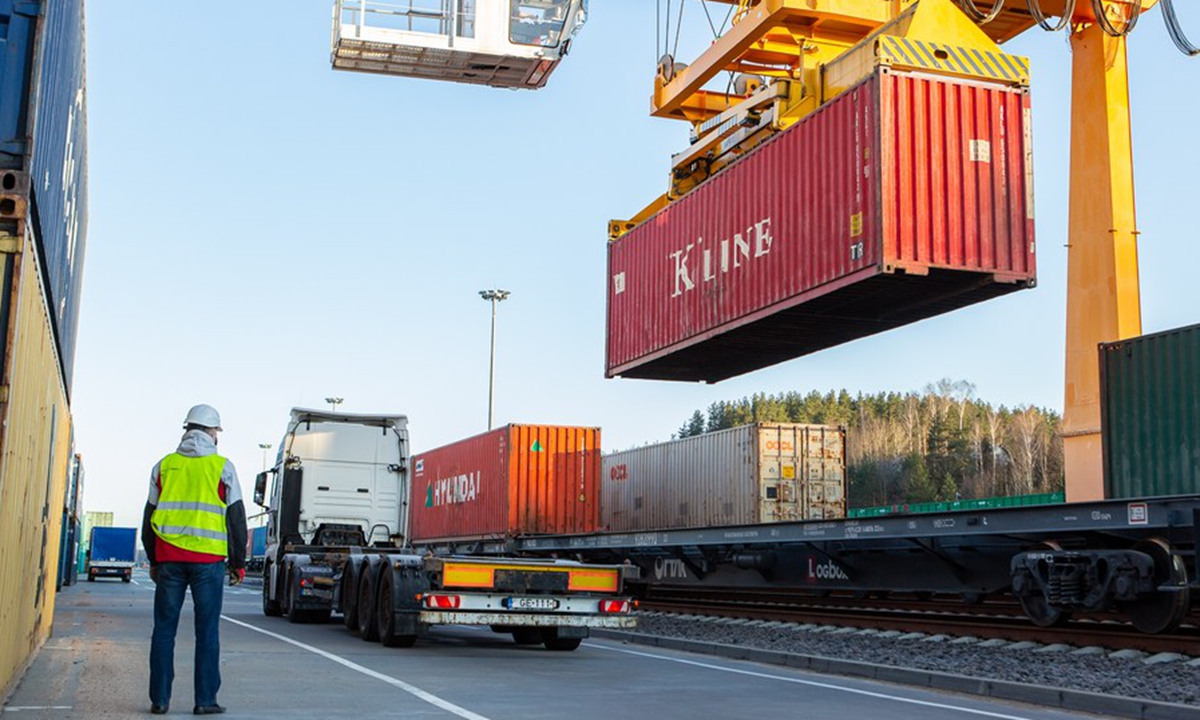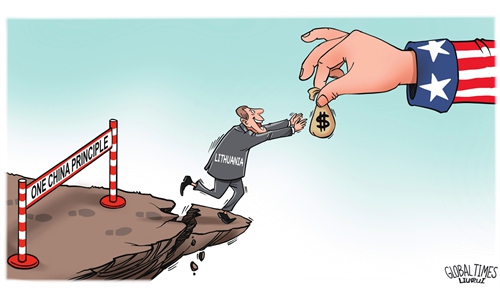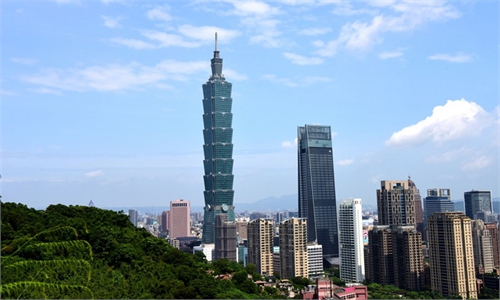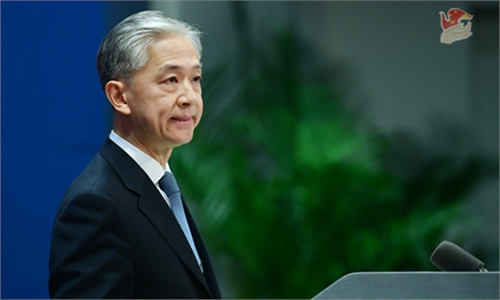GT Exclusive: Chinese laser industry bodies halt cooperation with Lithuania amid tensions, COVID-19
Chinese industry bodies halt cooperation amid tensions, COVID-19

The "China Post" CR Express 1st block train is unloading in Vilnius, Lithuania, April 14, 2020. Photo: Xinhua
Some Chinese laser industry groups have suspended cooperation and exchanges with their counterparts in Lithuania amid uncertainties and risks posed by COVID-19 pandemic as well as souring diplomatic relations due to Lithuania's provocation over the Taiwan question, and some Chinese dealers for Lithuanian laser products are facing rising hurdles.
Industry sources told the Global Times that the new development is not a direct result of the diplomatic row but reflects commercial factors based on rising hurdles and challenges. But the potential disruption could deal a major blow to the Lithuanian laser industry, one of the country's most promising high-tech exports, which is increasingly reliant on the Chinese mainland market.
Several Chinese laser industry representatives told the Global Times that cooperation and exchanges between the Chinese and Lithuanian laser industries had been disrupted by the COVID-19 pandemic and, in light of Lithuania's mistake over the Taiwan question, the cooperation will not resume in the foreseeable future.
Although there have been personnel exchanges over the years with Lithuanian laser industry, including the Lithuanian Laser Association, such cooperation with the Lithuanian side has been greatly reduced due to the pandemic and other factors, a source at a Guangdong-based laser industry association told the Global Times on Monday.
The source said that decisions to suspend exchanges and cooperation with Lithuania's laser industry were not political and did not reflect any political pressure, but what the Lithuanian government did has hurt the feelings of the Chinese people, which in turn disrupted bilateral relations.
A person with a laser industry association based in Guanggu, Wuhan city, Hubei Province, said that while the organization signed a framework agreement with a Lithuanian laser association several years ago, there is no longer any cooperation.
"Given the situation, there is no possibility for any cooperation in the foreseeable future," the person added.
While trade between China and Lithuania has focused mainly on agricultural and other sectors, cooperation in high-tech industries, especially the laser industry, has become an increasingly promising area of trade, with China's massive demand and Lithuania's focus on boosting its high-tech sector to diversify its exports.
Lithuania exports more than 90 percent of its laser production to about 100 countries and regions, with revenue reaching 130 million euros ($147.6 million) in 2019, according to a report on the website of Enterprise Lithuania, a non-profit organization under Lithuania's Ministry of Economy, in September 2020.
Among the main markets for Lithuanian laser exports, the Chinese mainland is the largest, accounting for 31.6 percent of the total, compared with the US at 15.8 percent and the Taiwan island at 1.6 percent, the Asia Times reported in October.
Despite suspended exchanges between Chinese and Lithuanian laser industry bodies, some business dealers on the Chinese mainland are still doing laser trade. However, they are finding it increasingly difficult amid the rising challenges posed by the Lithuanian side.
A dealer with a large Lithuanian laser company told the Global Times on condition of anonymity that there are rising risks that Lithuanian customs may stop some laser products from being exported to China, which has brought about a substantial impact to the company's business.
"In order to export products to the mainland, we now deliver products from Lithuania to the Hong Kong Special Administrative Region before exporting them to the mainland, which takes an additional week and raises costs," the person said.
The deteriorating relations, caused by the Lithuanian government's provocations have brought greater uncertainty for Lithuanian companies in expanding their business in the Chinese mainland.
Several people working in Lithuanian laser companies, which do business in the Chinese mainland, were very sensitive and unwilling to talk when reached by the Global Times for comment on Tuesday.
Lithuania sees the huge potential of laser technology cooperation in China. Several Lithuanian laser companies, including Light Conversion, Ekspla and Altechna have established representative offices or appointed local dealers in China.
In a previous interview with the Global Times in 2019, the former Lithuanian Ambassador to China Ina Marciulionyte said that "more and more Lithuanian laser companies are coming to China."
"Previously, we had laser markets in Europe, the US, and Japan, and now China is our biggest market," Marciulionyte said then.
Chinese Foreign Ministry spokesperson Zhao Lijian noted at a regular press conference on November 11 that "Lithuania has got to where it is today obviously at the instigation of a certain major country, but what has been hurt is Lithuania's own interests."



